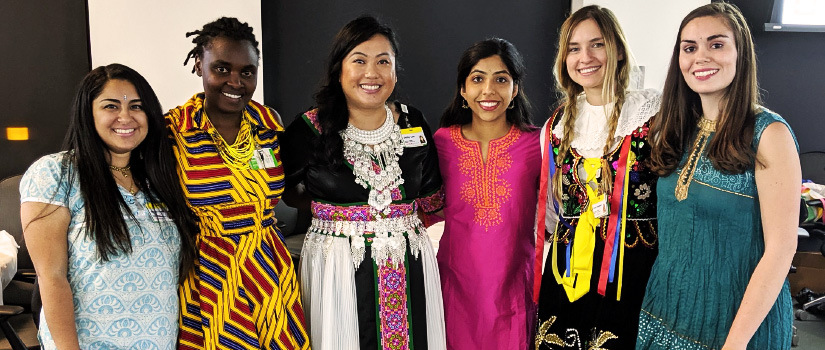In addition to the institutional resources, local, state, and national opportunities may also be found here:
Inclusive Language Repository
"Words carry meaning and power."
National Assembly of State Arts Agencies (NASAA)
The ways in which we refer to individuals and groups of people can be evidence of respect—or they can convey disregard or scorn. Historic and systemic injustice toward some groups has created bias and prejudice that seeps into everyday language. Because language use is deeply ingrained, mirroring patterns and cultural norms learned from infancy, we may not always be conscious of the harm our words can inflict, especially if we belong to a group holding power.
We know that words matter. The unparalleled ability that language has to either include or exclude individuals or communities (whether intentionally or unintentionally) has a profound affect in maintaining safe and welcoming environments.
At USC School of Medicine Greenville, we recognize language as a powerful tool and embrace our responsibility to provide inclusive spaces where all of our stakeholders feel they are supported and belong. Consistent with our commitment to inclusive excellence, the Office of CASE is happy to provide several resources that centers best practices for incorporating inclusive language throughout our learning environments and campus community.
While the resources provided are great tools, it is important to note the ever-changing
and dynamic nature of language-use. As such, the resources provided are not a comprehensive
or exhaustive list. However, this repository will serve as a living resource and
will be periodically updated according to current best practices.
- AAMC American Medical Association - Advancing Health Equity: Guide to Language, Narrative, and Concepts
- American Psychological Association – Inclusive Language Guidelines
- Journal of the Association of American Medical Colleges: Language Equity in Medical Education
- AAMC Equity, Diversity, & Inclusion
- AAMC Group on Diversity and Inclusion (GDI)
